At Innovety, we create end-to-end socioeconomic development programs that deliver measurable results for people and economies.
We design skill development programs so public sector institutions can deliver better services, youth and women can access decent work or start their own businesses, and MSMEs can scale into new markets.
This isn’t abstract development, it’s about delivering:
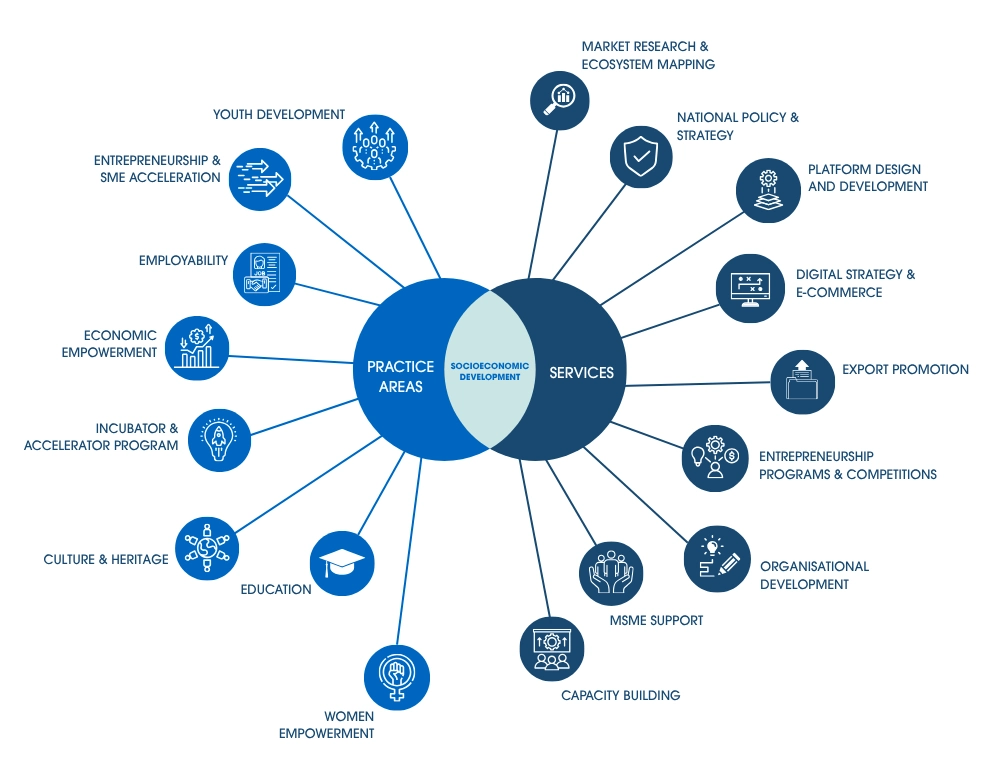
Socioeconomic development is the process of improving both the economic and social conditions of communities. It goes beyond GDP growth to address education, healthcare, job creation, and inclusive opportunities. At Innovety, we see it as building systems where youth, women, and MSMEs can access skills, markets, and resources — creating stronger economies and more equitable societies. Without it, countries risk high unemployment, limited innovation, and widening inequality.
The most powerful drivers include education and skills development, healthcare access, infrastructure, entrepreneurship support, and social inclusion. When these areas improve, people gain employability, businesses grow, and governments can deliver better services. For example, digital transformation and export readiness are now critical factors shaping competitiveness. Innovety designs integrated programs that connect these drivers to deliver measurable impact.
By creating opportunities for decent work, entrepreneurship, and skills-building, socioeconomic development directly addresses the root causes of poverty. It also ensures that women, youth, and marginalized groups are not left behind. For instance, micro-enterprise training, digital tools, and market access initiatives give vulnerable populations pathways to sustainable income. This translates into reduced income gaps and stronger, more resilient communities.
Education and skills training are the backbone of socioeconomic progress. Future-ready skills — from digital literacy to entrepreneurship — allow individuals to secure jobs or create their own businesses. Innovety partners with governments, universities, and NGOs to co-design learning pathways that match employer demand, preparing youth and women for meaningful participation in the labor market. This creates a skilled workforce that drives both innovation and inclusive growth.
Sustainability ensures that development today does not compromise future generations. Green innovation, climate resilience, and ESG-aligned programs strengthen both economies and communities. For example, adopting circular economy models or clean energy solutions not only creates new jobs but also protects natural resources. Linking socioeconomic development with sustainability enables countries to align with the UN Sustainable Development Goals (SDGs) while driving long-term competitiveness.
Effective programs include youth employability initiatives, startup and MSME support, incubator and accelerator development, digital adoption, and export readiness strategies. At Innovety, our work has ranged from building public sector capacity to designing digital platforms that expand market access. Each program is evidence-based, co-created with stakeholders, and focused on measurable results such as job creation, revenue growth, and social inclusion.
Economic development focuses primarily on financial growth, investment, and industrial expansion. Socioeconomic development, on the other hand, integrates the social dimension — ensuring that growth is inclusive, equitable, and sustainable. This means prioritizing education, healthcare, and social equity alongside business competitiveness and market expansion. In short: economic growth is about numbers; socioeconomic development is about people and prosperity together.
Turning Challenges into Opportunities for Growth.



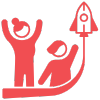

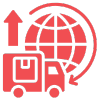

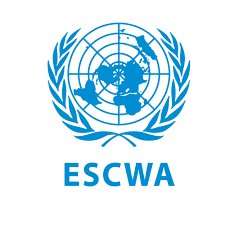
In collaboration with UNESCWA and Sudan’s National Information Center, this project aimed to establish technology incubators that would support high‑potential ICT startups, create jobs, and promote economic self‑sufficiency. The objective was to equip Sudanese startups with the tools and networks needed for survival and growth, driving technology commercialization and fostering a sustainable innovation ecosystem.
Performed a comprehensive entrepreneurial ecosystem analysis to assess gaps, stakeholders, and resources. Designed the incubator structure, including service offerings such as mentorship, IP management, financing access, and technical support. Developed a sustainable business model and operational framework while building partnerships with government, academia, private sector, and international organizations. Delivered capacity‑building programs for incubator staff and stakeholders.

The USAID TRADE Project aimed to boost Egypt’s exports by creating an Export Readiness Incubator and Accelerator for SMEs and New & Expanding Export Ready Enterprises (NEEREs). The goal was to provide tailored support, consulting, and networking to expand market access and strengthen trade institutions.
Designed a context-specific incubator and accelerator model through stakeholder consultations and global benchmarking. Defined strategy, services, and training modules, integrated B2B matchmaking, and developed a sustainable business model with an operational framework aligned to global best practices.

Many experienced lawyers aspire to establish their own practices but face challenges in accessing resources and gaining the business expertise needed to launch sustainable firms. This project aimed to assess the feasibility of creating a 1‑year legal incubator program to support early‑career lawyers in building their practices and meeting market demands for high‑quality, business‑oriented legal services.
Conducted a comprehensive feasibility study, combining organizational, financial, and economic assessments to define the viability and structure of the legal incubator. Using business opportunity generation methodologies, we designed a business plan and operational framework outlining services, revenue models, and long‑term sustainability strategies tailored to the Egyptian legal market.
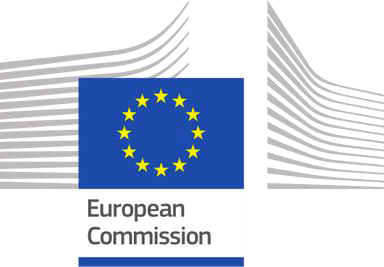
Egyptian startups face barriers in talent, finance, IP knowledge, technology commercialization, and access to international markets. Recognizing this gap, THE NEXT SOCIETY sought to design a customized accelerator to support innovative, high‑growth Egyptian startups in scaling internationally and accelerating market entry.
Conducted policy mapping, gap analysis, and benchmarking of global best practices for startup internationalization. Developed two strategic accelerator models (early-stage and ecosystem hub) with detailed business concepts, operational models, funding mechanisms, and structures. Designed a long-term development plan outlining services, delivery channels, and business models for sustainable impact.
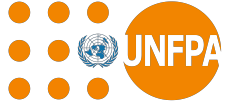
UNFPA aimed to create a Body of Knowledge (BOK) to equip participants in its social innovation incubator with tools for developing local solutions across its three pillars: family planning, maternal health, and ending gender-based violence & harmful practices. The BOK was designed to guide teams through all phases of the innovation process and build sustainable capabilities.
Created a comprehensive BOK covering opportunity mapping, business modeling, social M&E, finance, digital marketing, and pitching, with tools and templates. Over six months, we mentored UNFPA and partners to apply these across all incubation phases and ensured quality assurance for social innovator outputs.

UNFPA aimed to design a social innovation incubator leveraging design thinking to generate and implement local solutions addressing family planning, reproductive health, and gender‑based violence, including FGM. The program fostered collaboration with government, civil society, and youth‑led networks.
Designed a comprehensive incubator model, including a business and operational framework detailing processes, roles, and procedures. This was complemented by an implementation roadmap and partner mapping to ensure sustainability. Capacity‑building sessions were also conducted for UNFPA staff and stakeholders to embed innovation practices within program delivery.

In response to Egypt’s currency devaluation, this initiative aimed to strengthen the export competitiveness of Egyptian engineering MSMEs. It focused on enabling businesses to develop innovative, differentiated products through technology transfer, innovation, and product adaptation, while facilitating access to European markets via strategic matchmaking.
Conducted assessments of 100+ companies to analyze product features, value chains, and market positioning. Delivered capacity‑building workshops and developed 250+ business concepts. For 25 selected MSMEs, we designed market feasibility studies, commercialization roadmaps, and technology‑transfer strategies, while facilitating European partnerships through structured matchmaking and B2B linkages.

This program, under the EU‑funded PHEMAC initiative, aimed to accelerate R&D projects in the Water‑Energy‑Food (WEF) Nexus by preparing them for market entry. It focused on enabling participants to explore commercialization pathways, strengthen their business models, and enhance their go‑to‑market strategies.
Designed a full bootcamp curriculum covering innovation fundamentals, market segmentation, business modelling, financial projections, and pitching. Innovety delivered a multi‑day bootcamp for shortlisted projects, followed by individualized coaching to refine commercialization strategies and pitch readiness. Virtual acceleration sessions provided tailored support to finalize go‑to‑market plans.
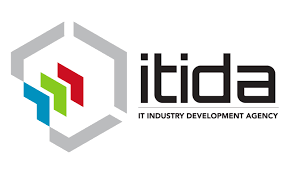
ITIDA launched GROWIT to enhance the global competitiveness of Egyptian ICT MSMEs. In partnership with CID Consulting and Deloitte, the project aimed to strengthen 50 companies through targeted capacity-building, fostering customer-driven innovation and operational excellence.
Focused on medium-sized enterprises, conducting needs and innovation readiness assessments, and delivering customized training. Core topics included innovation management, lean innovation, product design, and idea generation. Progress was tracked through pre- and post-impact evaluations.

As part of ITIDA’s GROWIT initiative, Innovety supported Cequens—a leading Egyptian ICT company—to strengthen its innovation capacity and competitiveness in global markets. The goal of the project was to improve internal processes and embed innovation across teams.
Innovety conducted a tailored training needs and innovation readiness assessment, followed by customized capacity-building workshops. Trainings focused on innovation management, idea generation, and tools for sustaining innovation within Cequens’ operations.